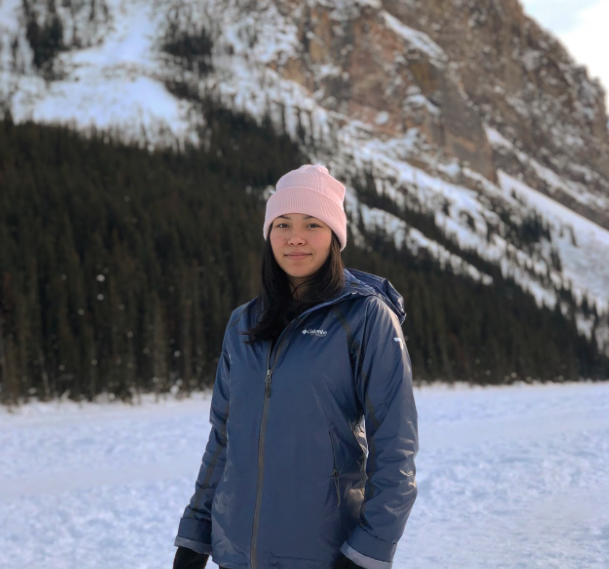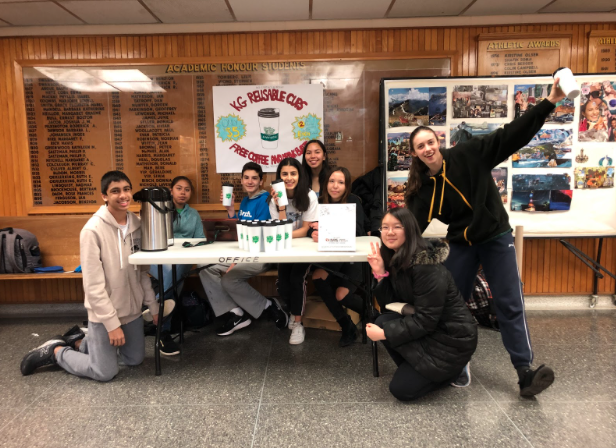Teen Girls Are the Best at Convincing Parents That Climate Change Is Real, Study Finds
Credit to Author: Anne Gaviola| Date: Wed, 08 May 2019 20:56:51 +0000
It took 15-year-old Salma Rafi a lot of stats and a long conversation in a Vancouver coffee shop to convince her father that climate change is a result of human actions, and something to worry about. This was a breakthrough after months of discussing the issue and explaining how anxious she felt about it.
“It wasn’t quite an a-ha moment, it was more of an ‘I understand you’ kind of moment,” she told VICE. “He was aware of what was happening in the world, it was more like he didn’t quite grasp the concept of why it was happening and how much of it was actually because of us.”

Even though Rafi isn’t old enough to vote, she and young women like her could help change the narrative around climate change and potentially sway an election. A report published this week in Nature Climate Change suggests that tweens and teens—especially girls—can convince and influence their parents about the reality of climate change, probably better than any grown-up expert or journalist.
The study, conducted by researchers at North Carolina State University, examined 238 American kids between the ages of 10 and 14, and their parents, over the course of two years. The children were exposed to a science-based climate change curriculum aimed at intergenerational learning from ecologists, academics, and scientists, and shared their findings with at least one of their parents. Researchers measured how concerned the parents were about climate change at the start of the study compared to the end.
”It was most effective among the parents who previously were the least concerned about climate change—so conservatives and fathers,” lead researcher Danielle Lawson told VICE. “And the teaching was most effective if the child was a daughter.”
Lawson said their findings suggest that intergenerational chats are effective because adults tend to let their guard down when they talk to their kids. Parents may perceive their children as being ideologically-neutral, and the relationship between parent and child is a trustful one, Lawson said.
“It comes together in a very harmonious but powerful way,” Lawson told VICE. “Kids can have this real impact that we may not always have with other types of communication.”
When asked why teen and tween girls were better at convincing parents than their male peers, Lawson speculated that young women are simply more advanced communicators at that age.

Rafi, who is in Grade 9, is the president of her high school’s earth club where she says the top leadership positions are all held by girls. In fact, she says practically every extracurricular club at her school is run by young women. “The girls I know are go-getters. They know what they want and they focus on their goals,” she said.
According to Lawson, the research shows that children who are properly educated about the realities of environmental impact and sustainability may be the best agents for change. Perhaps because they can cut through the biases that prevent many adults from being receptive to facts that don’t line up with their own worldviews and political ideology.
“Adults are very good at interpreting information in ways that confirm what they already believe. Really, you go into climate change conversations with people whose mind is already made up. But kids can provide this new perspective,” Lawson said.
That’s good news for young activists who have become a force to be reckoned with in recent years across North America—whether they’re high school students in Quebec creating memes, Canadian students walking out of class in protest, or teens in the US suing the federal government for failing to act on this issue.
Rafi has taken part in two nation-wide student protests this year, including one in Vancouver last week, she said. She also joined Youth Climate Strike Canada, part of a global movement to push the climate change issue front and centre on the political stage.
Rafi’s growing interest in climate change—as well as a “ton of videos,” including the Leonardo DiCaprio documentary Before The Flood—are what finally brought her parents around to her way of thinking, she said. Reminding them that the impact of climate change is something she’ll be dealing with well into the future helps to reinforce why she’s so committed to the cause.
Young people like Rafi may not be able to cast a ballot, but they can wield political muscle by convincing their parents, who can vote and demand that all major political parties take action, such as creating a climate change plan.
“It’s a really big issue and it’s like the kids are acting like adults and adults are acting like kids,” she said. “That’s essentially what’s happening.”
Sign up for the VICE Canada Newsletter to get the best of VICE Canada delivered to your inbox.
Follow Anne on Twitter .